Our team is often asked how much it costs to run a Google Ads campaign. So, we added it to our list of content topics. Answering customer questions is a great tactic that should form part of your content strategy.
This post explains why it’s no longer enough to summarise or rewrite what’s already ranking and how adding value to a blog post helped us rank and drive organic traffic.
We fired up Semrush and started some keyword research. The phrase ‘google ads pricing australia’ piqued our interest. Check out the average cost per click (CPC):
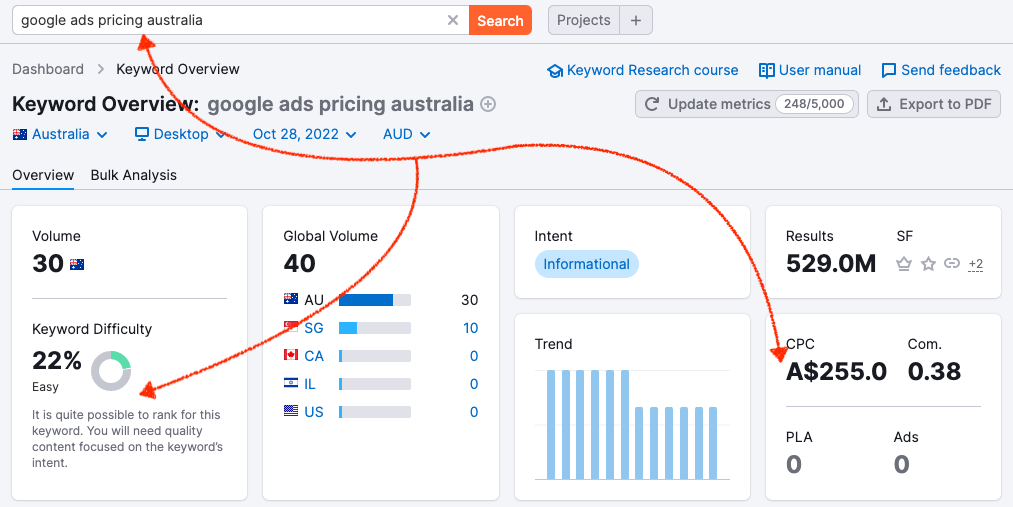

It’s clear Google wants to lock up the top paid position for this keyword.
Cross-checking with Google’s Keyword Planner and the top of page bid is $1,237.00:


Sure enough, here’s Google flexing its daily ad budgets:
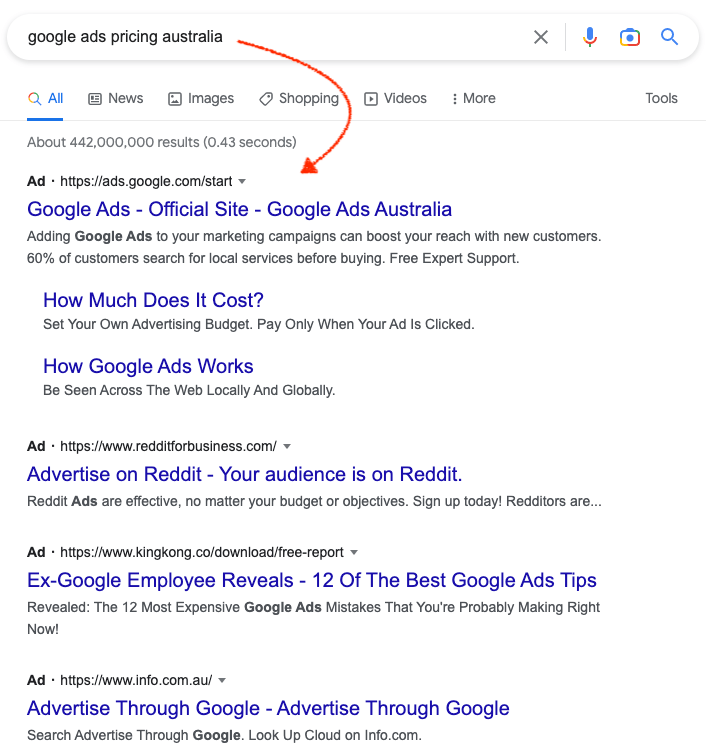

You have to have deep pockets if you want to out bid Google for this keyword.
Conversely, from an SEO strategist’s perspective, the competition for this keyword is not high at all. Semrush’s Keyword Difficulty metric scores it 22%, rates it “Easy” and says: “It is quite possible to rank for this keyword. You will need quality content focused on the keyword’s intent.”
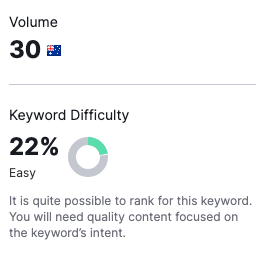

We decided we’d go after this keyword (and a range of other long tail variations) by answering the question ‘How much does Google Ads really cost in Australia [2022]?’
There are no new ideas
A great quote from Mark Twain is: “There is no such thing as a new idea. It is impossible…” and you can see this play out when researching blog topics.
Here’s a popular approach to researching and writing blog post content:
- Enter your primary target keyword into Google’s search bar.
- Open the top 10 ranking pages into separate tabs.
- Take note of the common headings, subheadings, topics, subtopics, and word length each blog post explores.
- Ensure you include the same topics in your content but go “more in-depth”.
The problem with this approach?
This tactic is no longer enough to rank for any worthwhile keywords.
Steps 1-3 are important to ensure you understand the search intent and topical coverage that Google is rewarding.
The issue is with step 4. Simply covering the same topics as the top sites but in more detail and hoping Google sees your post as the best just doesn’t work.
The answer – we need to add value and give Google a reason to include our content in the mix.
How we added value to the searcher in our blog post
When we looked at the top 10 pages ranking for one of the target keywords: ‘google ads pricing australia‘, they all spoke about similar things – average costs across different industries, features of the Google Ads platform and mistakes that people make running Google Ads campaigns.
We saw a chance to differentiate ourselves by including a paragraph on the opportunity cost of running Google Ads yourself instead of engaging a Google Partner agency.
Any marketing manager, marketing coordinator or business owner in our target market understands there is a cost associated with choosing one option over another.
We knew this concept would resonate with our target audience.
No other blog post in the top 10 results spoke about opportunity cost – this is where we’d add value to the search results.
Here’s an excerpt from our blog post where we argue against running Google Ads yourself:


The idea ties in nicely with Google’s most recent advice on writing helpful content where they explicitly ask if you’re just rewriting stuff that’s already ranking and not adding any value:
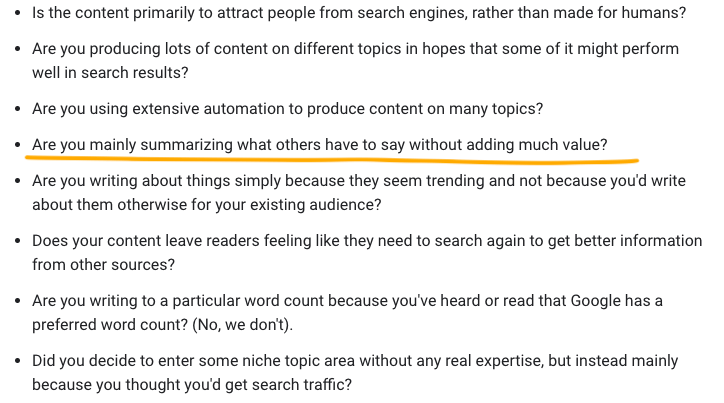

This is why the approach of simply rehashing the topics covered in the top 10 search results and writing more in more detail won’t work. We have to think about the value we can add to the search results.
How is the blog post performing?
While it took the post at least three (3) months to get any traction, we’re starting to reap the rewards.
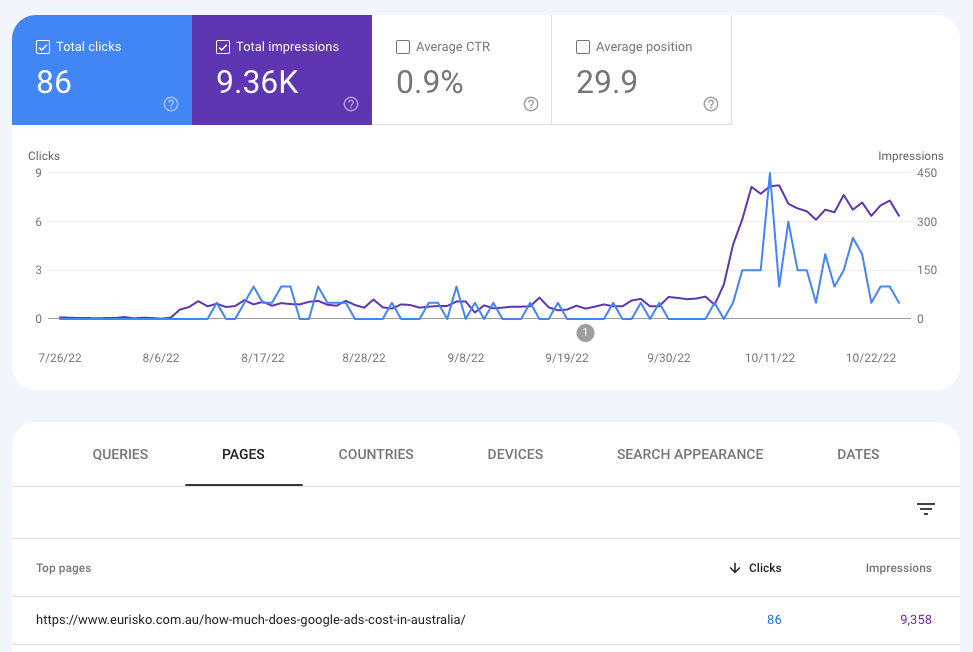

How can we further improve the post?
Our post is not perfect by any means. There is an opportunity to add more value by:
- Including expert insights to help differentiate our blog post even further from the pack; and
- Building links through a targeted outreach campaign.
Want great results like these?
We can create a content strategy to help boost your conversions, traffic and rankings. Why not book a free 30 minute consultation today!




